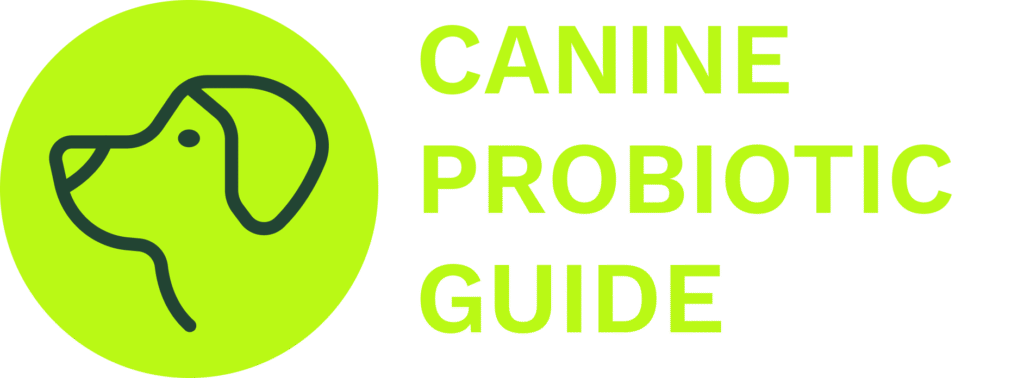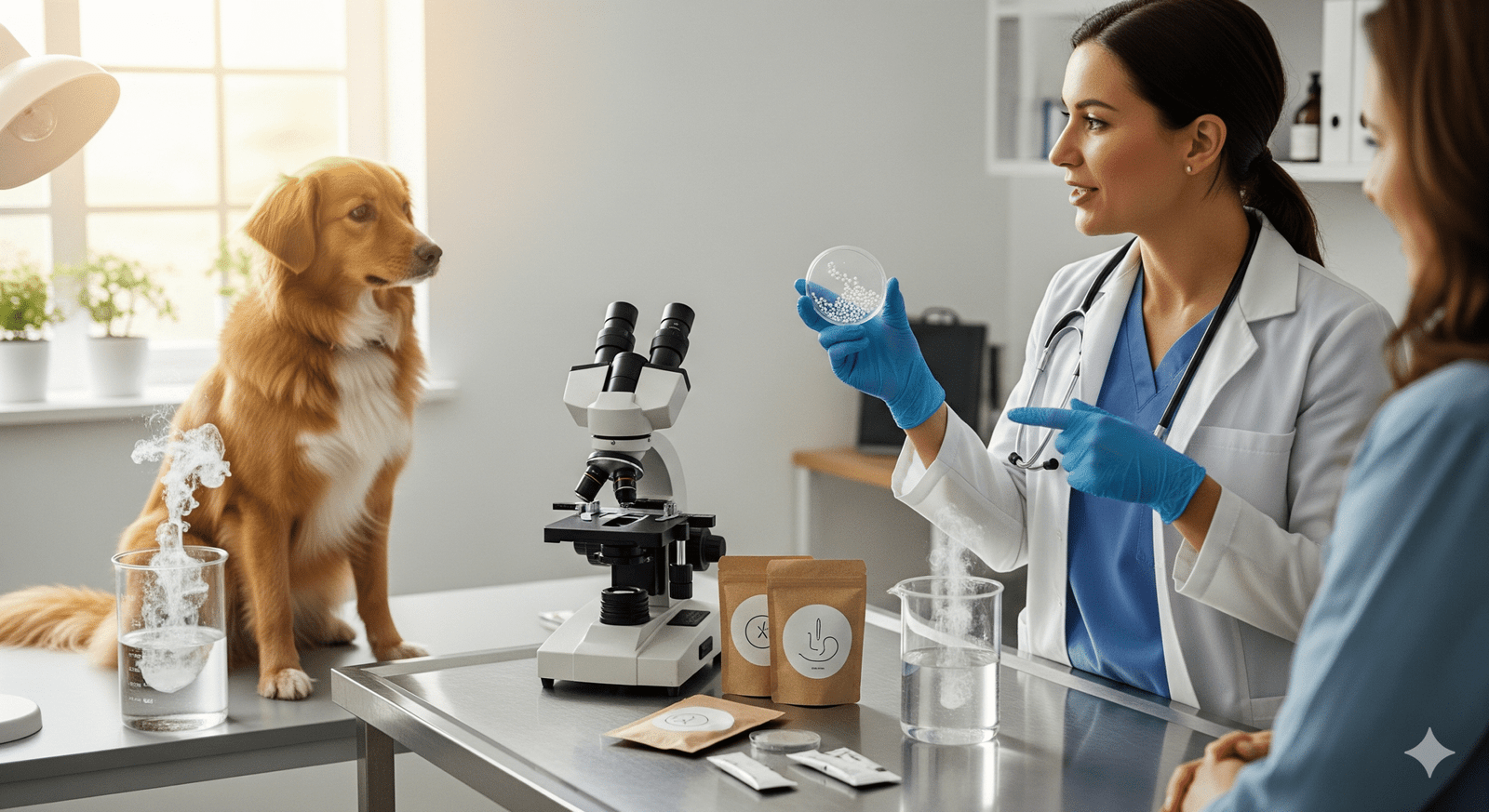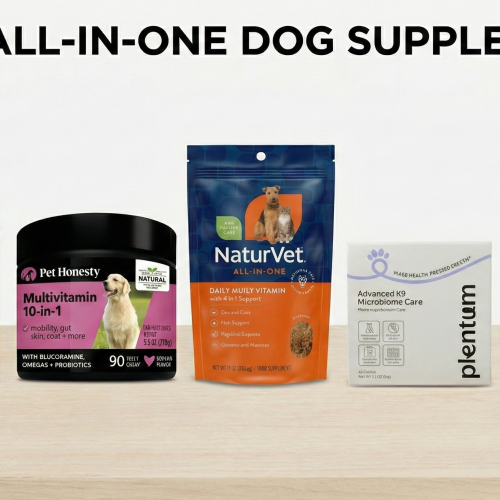Introduction to Dog Probiotics
Probiotics for dogs contain living microorganisms which deliver health benefits through appropriate dosages that specifically work on canine digestive system features. Dogs possess a straightforward digestive system adapted for protein-rich diets yet their bodies maintain complex microbial populations that build immune systems while fighting off pathogens and maintaining overall wellness. The scientific field of canine probiotics has undergone significant expansion throughout recent years to uncover remarkable relationships between gut health and total wellness.
What Are Probiotics for Dogs?
Dog probiotics consist of beneficial bacteria strains that primarily include Lactobacillus and Bifidobacterium species which scientists derive from canine sources to guarantee optimal host compatibility. The microbial agents operate by reshaping gut microbial communities and creating beneficial metabolic products including short-chain fatty acids and strengthening intestinal barrier function. Studies confirm that Lactobacillus acidophilus GLA09 obtained from healthy beagles functions better as a probiotic because it shows antimicrobial properties and stable genomic structure.
The Importance of the Dog Digestive System
Understanding Gut Health
The canine gut microbiota functions as an essential component for developing the immune system and extracting energy while defending against pathogens. Although dogs possess a less complicated digestive system than herbivores their intestinal bacteria create extensive health effects through their complex microbial communities. The dog-brain gut connection follows human patterns which makes them useful subjects for microbiome research.
The Role of Bacteria
The beneficial bacteria living inside a dog’s intestines preserve homeostasis through three mechanisms that involve microbial competition against pathogens and the production of antimicrobial agents and immune system regulation. The intestinal microorganisms enable better nutrient absorption while making essential vitamins and creating short-chain fatty acids which sustain intestinal cells.
Fascinating Fact 1: The Microbiome Connection
The Composition of a Healthy Dog Gut
A balanced canine gut microbiome contains diverse bacteria which include Lactobacillus, Bifidobacterium, and Enterococcus as key players in maintaining intestinal health. The composition of canine gut microbiota strongly depends on dietary choices since researchers have discovered particular bacterial patterns linked to health optimization.
How Probiotics Influence Microbiota
The addition of probiotics generates distinctive responses within normal dog populations as scientific investigations indicate synbiotic treatment with probiotics and prebiotics produces temporary changes to microbial diversity. Research indicates that administering L. reuteri, P. acidilactici and B. animalis probiotic strains leads to the targeted growth of beneficial bacteria while maintaining a balanced microbiome equilibrium.
Fascinating Fact 2: Probiotics and Digestive Issues
Probiotics serve to treat both diarrhea and constipation in dogs. Probiotics have been proven effective in reducing dog diarrhea through clinical research where dogs receiving probiotics experienced zero diarrhea compared to 16% in the control group. The probiotics establish balance in gut microbiota while improving intestinal barrier strength and generating beneficial metabolites that support regular bowel functions.
Probiotics for Dogs with Yeast Infections
Research proves that particular probiotic strains function to handle yeast infections by blocking competitors and making antifungal compounds. The supplementation of Saccharomyces cerevisiae proves effective in stopping the development of antibiotic-related dysbiosis that leads to opportunistic yeast growth in dogs.
Fascinating Fact 3: The Link Between Probiotics and Allergies
Dog Allergy Relief Through Probiotics
Probiotics have shown to deliver substantial dog allergy relief through their effects on the immune system according to current groundbreaking research. A randomized controlled trial spanning 10 weeks proved that dogs experiencing pruritic dermatitis received symptom relief at week 4 when treated with probiotics and nutraceuticals but required until week 7 for placebo-treated dogs to show improvements.
Case Studies of Allergy Management
The probiotic strains Bacillus subtilis and B. coagulans produced beneficial effects in dogs with induced allergic contact dermatitis by reducing clinical symptoms and shortening wound recovery time. Probiotic administration activated both conventional and non-conventional immune responses while increasing the body’s ability to kill typical pathogens. Research on atopic dermatitis demonstrates that probiotics regulate the balance between Th1 anti-allergic and Th2 pro-allergic immune responses.
Fascinating Fact 4: Prebiotics vs. Probiotics
What Are Prebiotics for Dogs?
Prebiotics for dogs are substances that can be used by beneficial microbes to aid their growth and activities but cannot be digested or metabolized by the host. The most recent definition describes them as compounds that promote the growth of beneficial bacteria already present in the gut, rather than introducing new organisms.
The Synergistic Effects of Prebiotics and Probiotics
The combination of prebiotics and probiotics in synbiotics has a synergistic effect that is more than the sum of either prebiotics or probiotics. Inulin, a common prebiotic, when combined with multiple probiotic strains, shows enhanced ability to modulate gut microbiota and improve health outcomes. The effect of yeast cell wall preparations with high mannan oligosaccharide solubility is superior in dogs.
Fascinating Fact 5: The Future of Probiotics in Veterinary Science
Ongoing Research and Developments
The future of canine probiotics involves the use of personalized microbiome medicine with the development of next-generation biotics based on host genetics, diet, health status, and commensal microbiome composition. Advanced laboratory techniques and genomic analysis are enabling the development of targeted probiotic strategies for specific health conditions.
Integrating Probiotics into Dog Care
Research has also been conducted on postbiotics, which are preparations of inactivated microorganisms that provide health benefits without the challenges of maintaining live bacterial cultures. The developments combined with antimicrobial resistance concerns make probiotics more important alternatives to conventional treatments in veterinary medicine.
Conclusion
Summary of Key Points
Probiotics in dogs are of interest to the veterinary field because they can help in the following areas: the gut, the gut, the gut, the gut, and the gut. Research shows that probiotics for dogs can be safe and are effective alternatives to conventional treatments for digestive disorders and can be used to support long-term health outcomes.
Encouraging Responsible Use of Probiotics
However, responsible implementation of canine probiotics should be guided by veterinary advice and the use of quality assured products. The unique nature of microbiome responses highlights the need for monitoring and adjusting probiotic regimens according to each dog’s unique needs and health status.







